The decision for Bulgaria's full membership in the Schengen area from the beginning of 2025 is a historic event both for the country and for relations with neighboring EU countries – Romania and Greece. What is the defining event in Bulgaria's bilateral regional relations with its neighbors outside the borders of the community – Türkiye, Serbia and North Macedonia? Radio Bulgaria sought expert opinions, which we publish in the second part of the Balkan Review of 2024:
Bulgaria and Türkiye – The visit of the Turkish Foreign Minister to Sofia showed that Ankara is monitoring the processes in DPS and laid the foundations for agreements on de-mining the Black Sea and on joint air policing
According to Mehmed Umer, publisher of the websites obzornews.bg and bakis.bg, it would be easier to summarize the year in Bulgarian-Turkish relations if it were 2025, when 100 years since the signing of the Treaty of Angora* will be marked. As a flagship event for 2024 he points out the visit of Foreign Minister Hakan Fidan at the beginning of the year to Sofia at the invitation of Foreign Minister Mariya Gabriel:
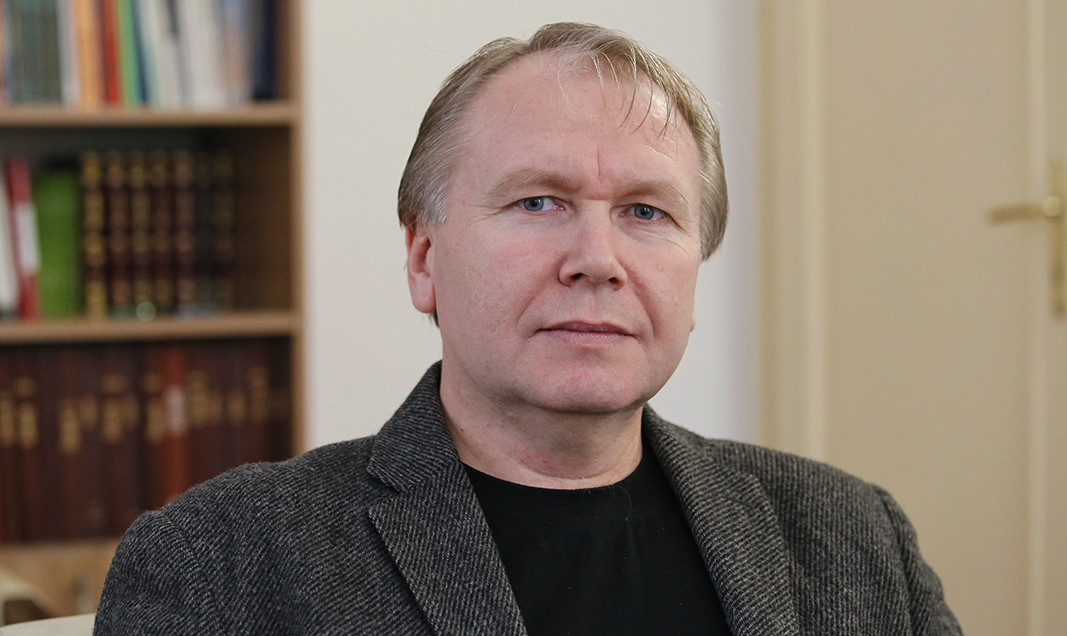
"The Turkish Foreign Minister comes from the post of head of intelligence. Why am I mentioning it? First, because it is a fact, but secondly – he came here and his first meeting was held at the Turkish embassy with the resigned leader of DPS, Mustafa Karadayi**. Was this actually a signal to Bulgaria? In a country that is the heir to a former empire, don't they know diplomatic moves, manners, tricks? I am far from thinking that Mr. Fidan has not sufficiently mastered diplomacy and the approach to diplomacy. Apparently, this was a sign," the observer recalls. He points out that the second important point in bilateral relations in 2024 is the agreement signed in Ankara between Romania, Türkiye and Bulgaria for de-mining the Black Sea.
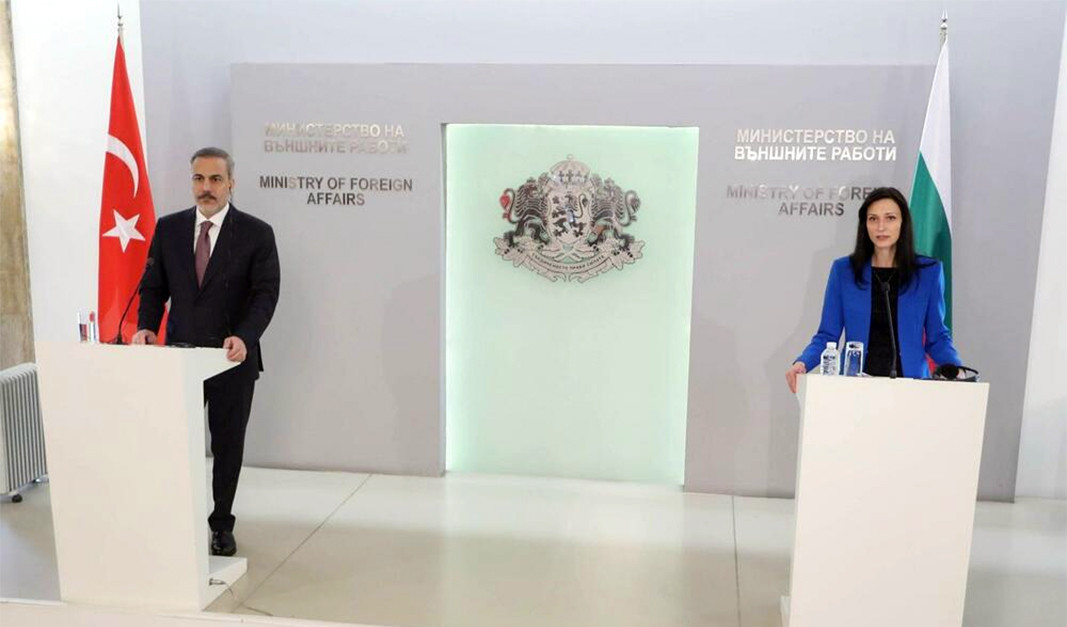
The memorandum on air policing that the Minister of Defense Todor Tagarev signed in Ankara was also in the spirit of partnership created during the visit of Hakan Fidan at the beginning of this year. At that time, various interpretations emerged in the media such as: 'Will Türkiye protect our skies?' In my opinion, the most accurate title in this case is that the sky of Bulgaria and Türkiye is NATO's sky and that we are NATO allies.
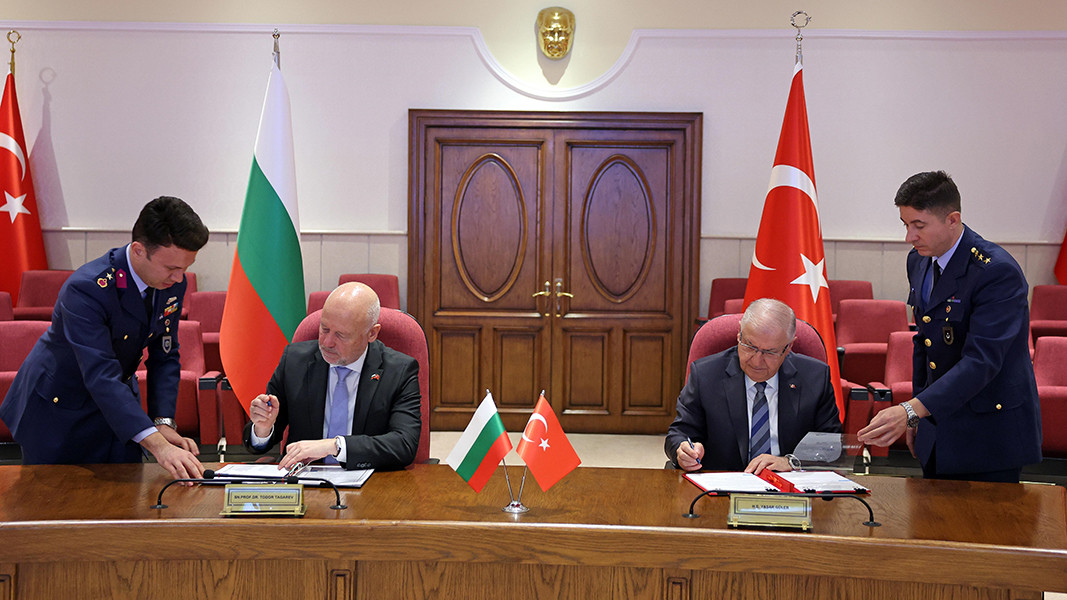
A lot was written about where this is coordinated from, what command centers exist, but that is not important. The important thing is that during the visit of Minister Fidan he and our Foreign Minister at that time, Mariya Gabriel, prepared the basis for this memorandum in the spirit of bilateral partnership, Mehmed Umer points out.
Bulgaria and Serbia with opposing geopolitical transport strategies in North Macedonia
"I would suggest that we abandon this review of official contacts, official events, official celebrations or official disputes and look for what is behind the scenes," Dr. Biser Banchev from the Institute of Balkan Studies of the Bulgarian Academy of Sciences told Radio Bulgaria.
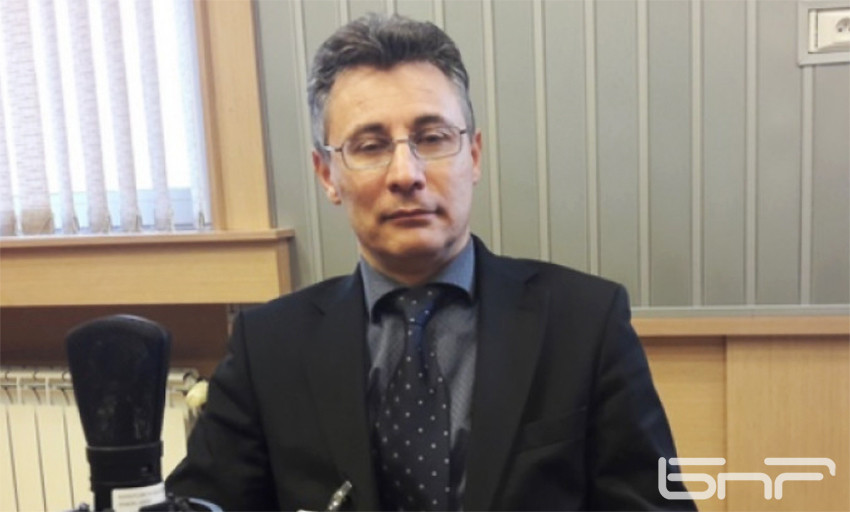
"For me, the most important event or the most important process for 2024 is the success that the Serbian state achieved in blocking the construction of Corridor No. 8***. You could say Corridor No. 8 concerns the relations between Bulgaria, North Macedonia and Albania? Of course, but in fact there is a very direct connection. The first direct connection is that Corridor No. 8 is viewed by the Serbian state as a direct competitor to Corridor No. 10****. By the way, to avoid any mistake, the North Macedonian Minister of Transport said this several times. But what is more important is that the Serbian Minister of Construction, Goran Vesic, said the same thing. He directly declared that his greatest merit this year was the blocking of Bulgarian attempts to intensify work on Corridor No. 8.
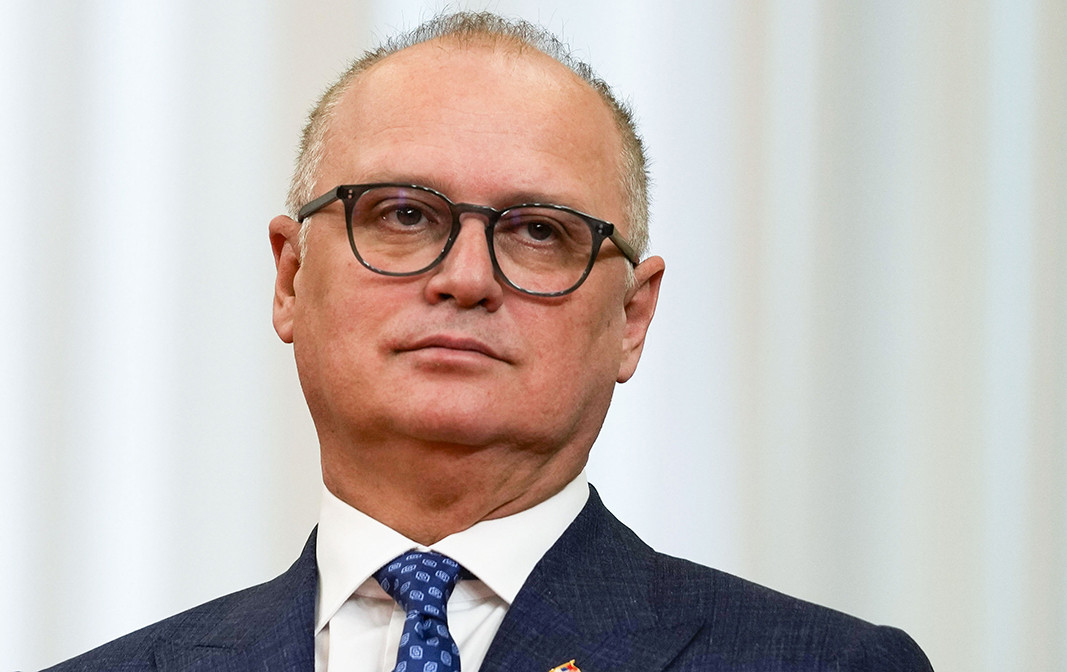
It is interesting to note that Goren Vesic is currently arrested in connection with the fact that he must take responsibility for the extremely large scandal, with the failure of the repair of the station in Novi Sad, where 15 people lost their lives - this is a major corruption scandal," the researcher from the Institute of Balkan Studies of the Bulgarian Academy of Sciences says.
Bulgaria and North Macedonia – 2024 exposed the Serbian model of Macedonianism
The shortest explanation for everything happening in 2024 in North Macedonia is the exposure of the Serbian model of Macedonianism, Lyubcho Neshkov, journalist and owner of the BGNES agency told Radio Bulgaria.
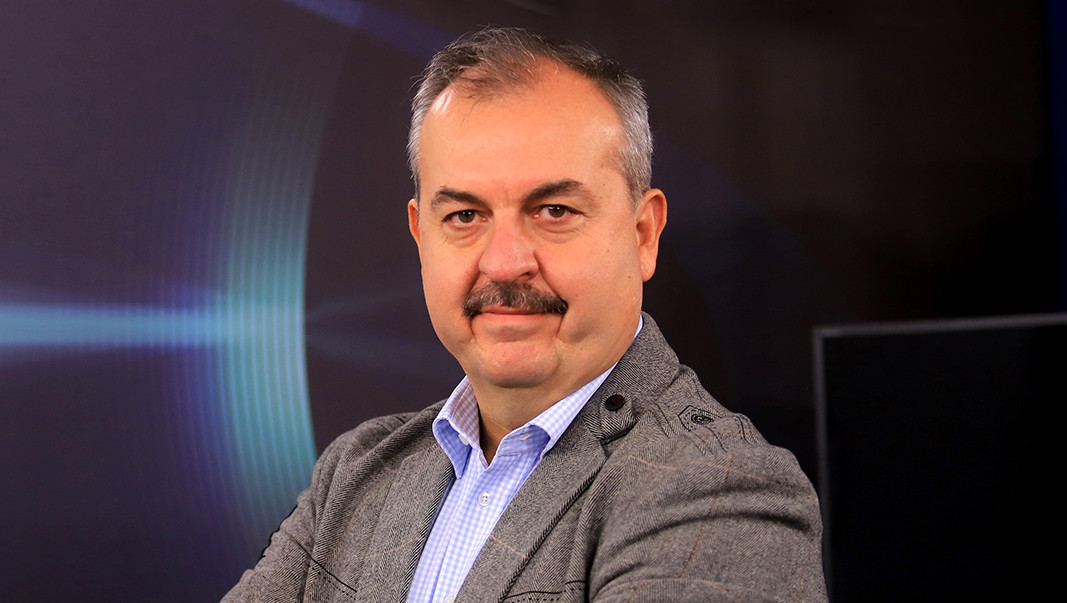
"Every day we witness a rude, ill-mannered aggression against Bulgaria. Such as we remember between the two world wars 1919-1941, when Macedonia did not even exist as a name and was called Southern Banovina. Then the main model and I would say the meaning of the existence of Southern Banovina, was to persecute the Bulgarians and sow hatred against Bulgaria. This is exactly what we are witnessing. I would say more, this is a new stage in the Serbian version of Macedonianism. That is, we have passed to the stage of open support for the 'Serbian World', open alliance with Serbia, political support. Moreover, these days we have witnessed how Prime Minister Hristijan Mickoski defends Serbia from the Bulgarian veto regarding the opening of Cluster number 3 (in the negotiations for accession to the EU). We are already seeing unification with this 'Serbian world', which thirty years ago was called 'Greater Serbia',“ the journalist tells Radio Bulgaria. We asked him whether the Bulgarians will be included in the constitution of North Macedonia in 2025.
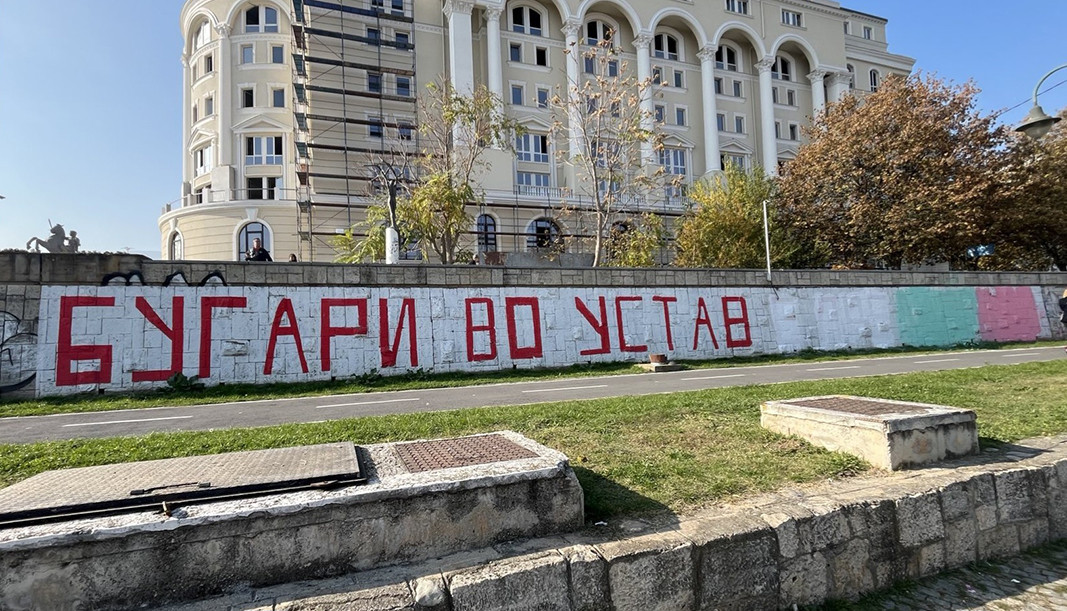
"The very inclusion of Bulgarians in the constitution is one percent of the problems that North Macedonia is facing. Let's leave aside the topic of Bulgarians. This is a country where there is a lack of elementary compliance with the law. It has become a model of how former rulers hide in trunks and find refuge abroad. It is not only Nikola Gruevski (former Prime Minister of North Macedonia, hiding from Macedonian justice in Hungary - author's note). These days we have learned that former Deputy Prime Minister Artan Grubi, has fled in a diplomatic car, this time to Kosovo. Each of us is witnessing an occupied country that is carrying out foreign, geopolitical and anti-European projects," Lyubcho Neshkov says.
Read aslo:
--------
* The Treaty of Angora is an agreement of friendship and cooperation between Bulgaria and Türkiye, signed in 1925 in Ankara, then called Angora. For decades, it remained the basis for stable bilateral relations between Bulgaria and the Republic of Turkey, established in 1923 by Mustafa Kemal Atatürk .
** At the Turkish Embassy in Sofia, before the start of his official visit, Hakan Fidan met separately with the resigned leader of DPSMustafa Karadayi, with Deyan Peevski and with Dzevdet Chakarov, to receive information fgrom them about the processes and the growing split in DPS.
*** The Pan-European Transport Corridor No. 8 is one of the ten Pan-European transport corridors and connects the Adriatic with the Black Sea through Albania, North Macedonia and Bulgaria. Together with corridors No. 4, No. 7 and No. 9, it is one of a total of four corridors passing through the territory of Bulgaria.
**** The Pan-European Transport Corridor No. 10 was added in 1997 at the Conference of European Ministers of Transport in Helsinki. The multimodal transport route runs from northwest to southeast and connects Austria, Slovenia, Croatia, Serbia, North Macedonia and Hungary with Greece and Bulgaria. The corridor includes approximately 2,528 km of railway lines, 2,300 km of motorways, 12 airports and 4 sea and river ports.
Author: Ivo Ivanov
Publication in English: Al. Markov
Photos: BGNES, AP/BTA, BNR, mfa.bg
The Bulgarian National Assembly is holding an extraordinary meeting at which MPs are hearing the senior management of the Central Election Commission and the Information Service company regarding their actions in the Constitutional Court case..
Student protesters in Serbia call for a general strike Student protests against the government and President Aleksandar Vucic continue in Serbia for the fourth month. In an appeal on Instagram, the protesters called on..
Life between Bulgaria and France... A little more than 80 years ago, in 1942, a boy was born in Sofia - the love child of a Bulgarian woman and a Frenchman. His parents met in France, but they decided to start a life in Bulgaria, so the couple settled in..
The Bulgarian National Assembly is holding an extraordinary meeting at which MPs are hearing the senior management of the Central Election Commission..

+359 2 9336 661
